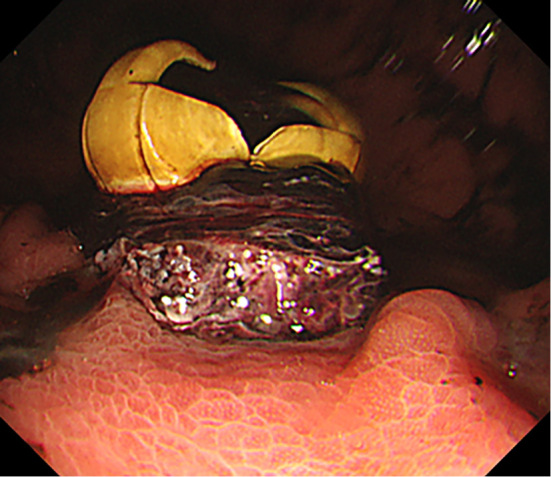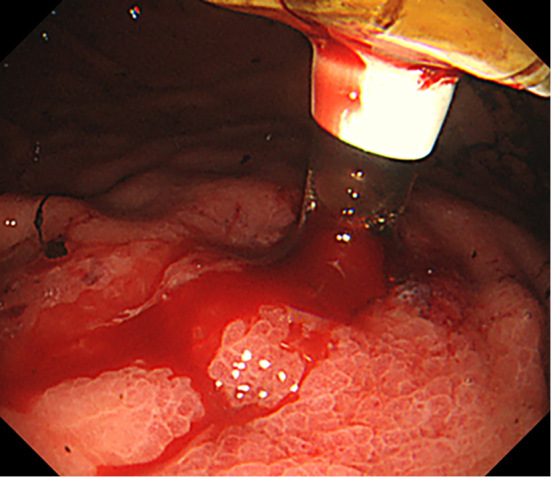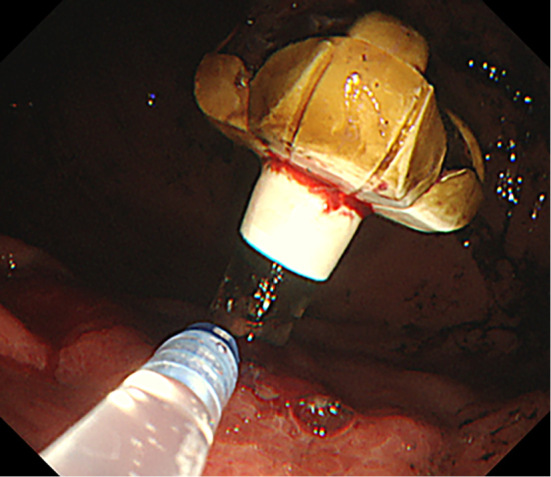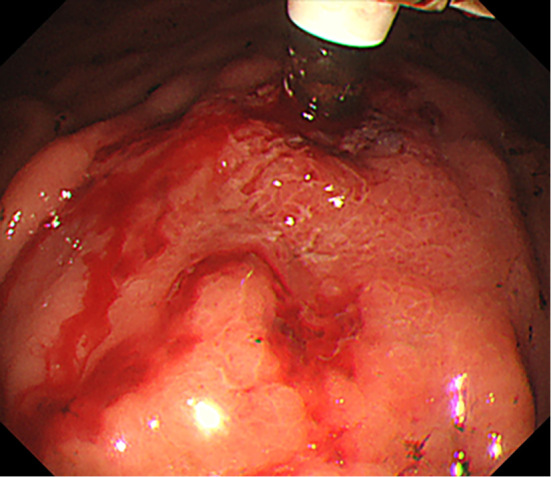A 64-year-old man was referred for percutaneous endoscopic gastrostomy (PEG). He had been on antiplatelet therapy with cilostazol. PEG was performed with cilostazol withdrawn. Hematemesis occurred the next day with evidence of mild anemia. After compression hemostasis using the gastrostomy button, emergency esophagogastroduodenoscopy revealed a coagulum between the stomach wall and the inner bumper (Picture 1) and fistula bleeding upon its removal (Picture 2). As the point of bleeding was not identifiable with a water jet, PuraStatⓇ (3 mL) was applied to the bleeding site using a dedicated catheter (Picture 3), which led to immediate hemostasis (Picture 4). Cilostazol was resumed the following day, and the patient's course was uneventful thereafter. PuraStatⓇ is a novel peptide-based hemostat (1) reported to be effective for acute gastrointestinal bleeding (2). The hemostasis technique described here should illustrate how PuraStatⓇ may be readily used for hemostasis in patients undergoing PEG during antithrombotic therapy.
Picture 1.

Picture 2.

Picture 3.

Picture 4.

The author states that he has no Conflict of Interest (COI).
References
- 1. Soons E, Turan A, van Geenen E, et al. Application of novel self-assembling peptide to prevent hemorrhage after EMR, a feasibility and safety study. Surg Endosc 35: 3564-3571, 2021. [DOI] [PMC free article] [PubMed] [Google Scholar]
- 2. De Nocci G, Reati R, Arena I, et al. Efficacy of a novel self assembling peptide hemostatic gel as rescue therapy for refractory acute gastrointestinal bleeding. Endoscopy 52: 773-779, 2020. [DOI] [PubMed] [Google Scholar]


